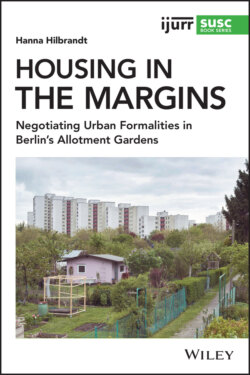Читать книгу Housing in the Margins - Hanna Hilbrandt - Страница 19
Summary: Chapter 2
ОглавлениеThis chapter details the book’s central line of argumentation, as well as its underlying theoretical approach. It argues that contemporary literature on informality, by casting the state in ways that tend to either underscore its flexible and oppressive use of informality or the ways in which citizens obstruct state powers by resisting them “from the outside,” methodologically has less to say about the more interactive practices of negotiation that this book is concerned with, where the roles and interests of “both sides” are more fluid and frequently merge. To analyze informality through the small-scale and incremental powers of negotiation, the chapter discusses theoretical traditions that place weight on the normative judgments and social embeddedness of those who are negotiating, the legal-material processes of regulatory enactment, the entwinement of institutions in social life, and the ways in which these processes of enactment reflect back on and transform wider processes of institutional transformation. To conclude, the chapter suggests that this reading of how people negotiate irregular housing conditions in everyday situations is more in tune with the ways in which informality is governed in Berlin’s allotment gardens than accounts of informality that focus on “states ‘with muscles’” are (Boudreau et al., 2016: 2397) and, moreover, permits us to grasp the normalcy of these negotiations as well.
